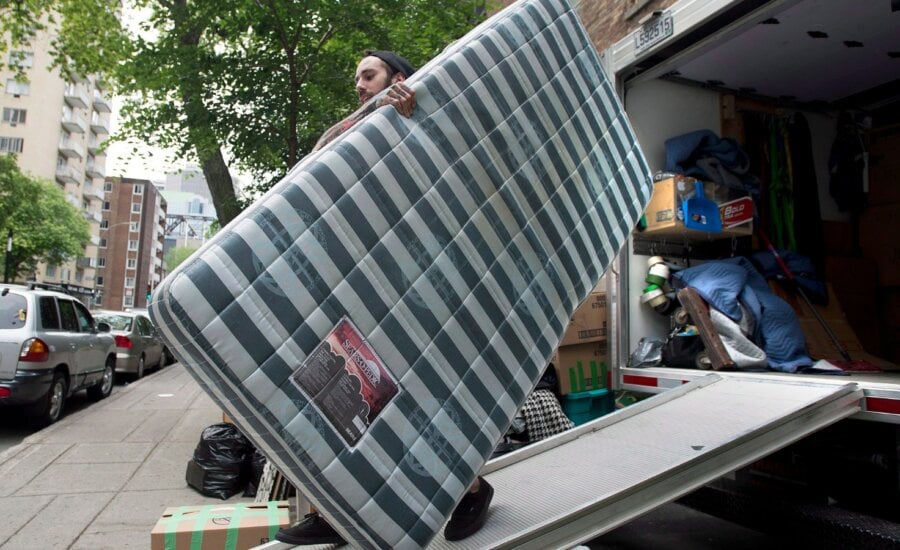Relocating? How to budget for a whole new life
Planning a move to a new city involves budgeting, accounting for hidden costs, and using expert advice to navigate lifestyle and financial changes.
Advertisement
Planning a move to a new city involves budgeting, accounting for hidden costs, and using expert advice to navigate lifestyle and financial changes.

Relocating is more than a farther move—it’s setting up a whole new life in a different local economy. It’s likely that change was a financial decision in the first place, whether it be pursuing cheaper rent or property, or landing a new job in a different area. So budgeting for this major life change needs to go beyond just researching moving costs, said Calvin Hexter, a Realtor with the Calvin Realty Team at eXp Realty, in Edmonton.
Your first concern is wrapping up your obligations in your current city or town. “I think a lot of people get surprised when it comes to terminating their mortgage,” said Hexter. “They are two years or three years [into a mortgage term] and didn’t realize that, and sometimes it could be a $10,000 to $15,000 penalty. If you’re starting from ground zero, it’s looking at what is it going to cost for you to exit your current arrangements. Are you mid-lease? Are you mid-mortgage? And what are the implications with that?”
In terms of the move, if your move-out and move-in days don’t line up very well, Hexter noted that unexpected costs can include temporary storage for your possessions, and hotel or Airbnb costs if you need to stay somewhere. Ask your Realtor for recommended moving companies, he added—their referral might even come with a discount.
Otherwise, be wary of the cheapest moving quote; it could be a scam. Check with the Canadian Association of Movers, which has compiled resources and cases of common moving scams, which often start with very low quotes.
When moving across a significant distance, not all your furniture might be worth bringing, said Brandon Wiebe, a fee-only financial planner with Money Helps, based in Saskatoon. An upfront cost to consider would be buying new furnishings when you land. There’s also the expense of the travel to get there, whether a plane ticket or the cost of gas if you’re driving.
Another landing cost that’s hard to track on a spreadsheet—your support system.
“One of the bigger things you want to consider is how your support system might change if your friends and family aren’t accessible,” Wiebe said. “That could mean you don’t actually have anyone to help you move. Maybe you were thinking of renovating something that a certain family member could help you with, but you’re not able to do on your own. Or, really, a big one is if you have children and maybe parents were helping out with childcare.”
Answer a few quick questions to get a personalized quote, whether you’re buying, renewing or refinancing.
If you are lucky enough to have the option, Wiebe recommends a more cautious, “try it before you buy it” approach to relocating. Rent in the city first, don’t buy right away. If the lifestyle isn’t a good match, reselling a property within a couple years is costly in terms of recouping Realtor and closing fees, he said.
Wiebe had clients who spent time house-sitting in Montreal to get a feel for the city. “They ended up purchasing and were quite happy,” he said.
Your projected budget in a new, bigger city shouldn’t always assume it will be more expensive in every aspect.
Rural properties, for instance, have their own unique costs, Hexter pointed out—everything from septic tanks to snow-clearing a very long driveway. Property maintenance can be pricey. Property tax rates can also vary widely across the country.
Some cities can let you live car-free, if they are walkable and have a strong transit system.
“I think people in Saskatoon may assume that everything is just going to be more expensive [in another city],” Wiebe said. “You know, there may be areas like transit or even the cost of heating your home in the winter where you actually can save money in another city.”
As for the local cost of living, everything from groceries to gas, you can research online to understand how expensive your lifestyle may be in a new location.
Hexter recommends ChatGPT for summarizing reliable sources and cost calculations. You can drop a credit card statement into an AI tool and ask it to project the cost of your lifestyle in another city. Or you can do it yourself—look at your expenses, and research those costs where you plan to land.
You can also consult with your real estate agent, especially if they have experience with relocating clients. “Lean on your professionals,” Hexter said. “If you’re working with a Realtor, talk to them about moving costs. Real estate agents that have experience in relocation will have the professional partners that can help, and have you ask the right questions, and also maybe uncover any blind spots.”
Share this article Share on Facebook Share on Twitter Share on Linkedin Share on Reddit Share on Email